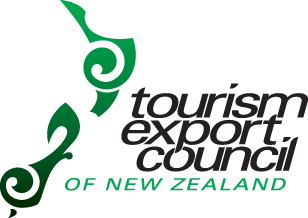If tourism operators want to employ skilled migrant workers they may have to start paying more. That’s the message from the government, TEC CEO Lesley Immink told the end of year symposium. TEC is working with TIA and MBIE on immigration visitor and migrant worker visas categories. “the main message the government is saying to us is, if you value this employee you have to show your value by a pay rate or wage with a minimum of $47,000 (based on a 40 hr week) whether front office language speakers, inbound operator product managers or adventure tour guides”. Migrants applying for employment under the Skilled Migrant Category also now need 160 points to qualify for the visa compared to the previous 140 points. Priority weighting and points (30) are given to those who choose to work outside the Auckland region. It is expected further changes to Essential Skills and Working Holiday Visas will be announced early next year.
Ms Immink said TEC has an ongoing friend-and-foe relationship with DoC. “tour operators care for the environment, whether they be part of a group tour, Real Journeys or THL. We all want to deliver that experience and most of it happens on the DoC estate but there are challenges with DOC working in the commercial space.” TEC is working with TIA, DoC and the Bus and Coach association looking at improving the compliance to guiding, parking and general concessions. “It is big work in progress with DoC experiencing phenomenal growth in recent years. So many more people are getting out and experiencing wildlife which has increased the pressure on the infrastructure and environment.”
ITOs work hard bringing in groups and FITs to New Zealand but because of supply and demand for hotel inventory, there are constant price changes and allocations.“We are constantly working on your behalf up in market to bring new business to New Zealand and it has been frustrating when ITOs secure the business thinking they have allocation and contracted rates only to be told, sorry the status quo has changed, she told operators. This causes embarrassment to the ITO and the wholesaler at the other end, and is damaging the reputation of New Zealand as a destination. A pop-up survey last month with ITOs indicated up to 30% of business being lost from New Zealand because accommodation in Auckland and Queenstown cannot be secured to complete itineraries. We need to respectfully keep talking to each other so there are less ‘surprises’ and we don’t turn off wholesalers from dropping New Zealand as one of their destinations to sell.”
TEC took a risk supporting the Choose Clean Water Campaign but wanted to contribute to a worthy project – protecting the environment. Between the campaign, a successful petition (13,000), the submission to the Next Steps for Freshwater, TEC has bought the tourism industry into an important environmental discussion with 92% of members indicating they want TEC to continue advocating for the protection of the environment. When the campaigners appeared before a select committee the young group was impressive. “All are under 30, all are studying and it was inspiring to have these young people standing up for freshwater. The Select committee with representatives from Labour, National and Green Parties with local government were highly impressed with their presentation. That combined with the Havelock North water borne illness incident, has prompted them to recommend to government that Freshwater quality become and an issue of public health & safety.
Young TEC has grown to 270 members and in its short history has already won the PATA gold award for education and training. This may be extended to other PATA member nations. Young TEC is also keen to hold TEC Talks, similar to the popular and global philosophical and inspirational TED talks on Youtube.
